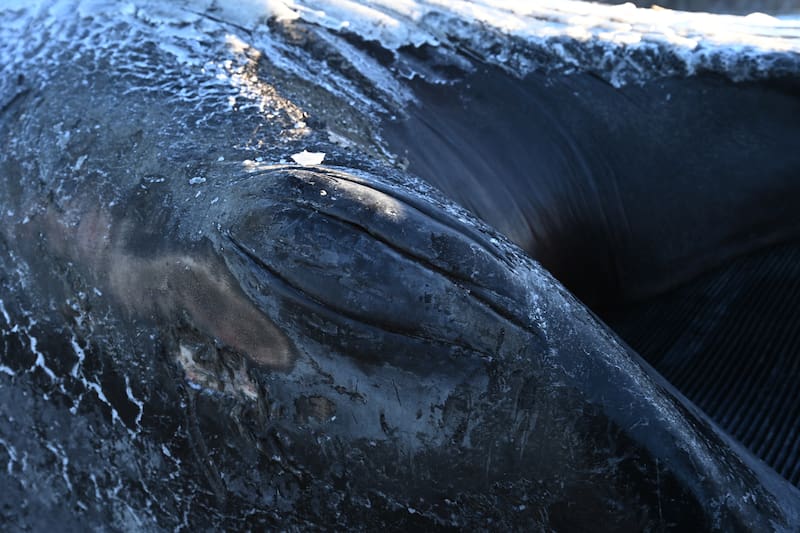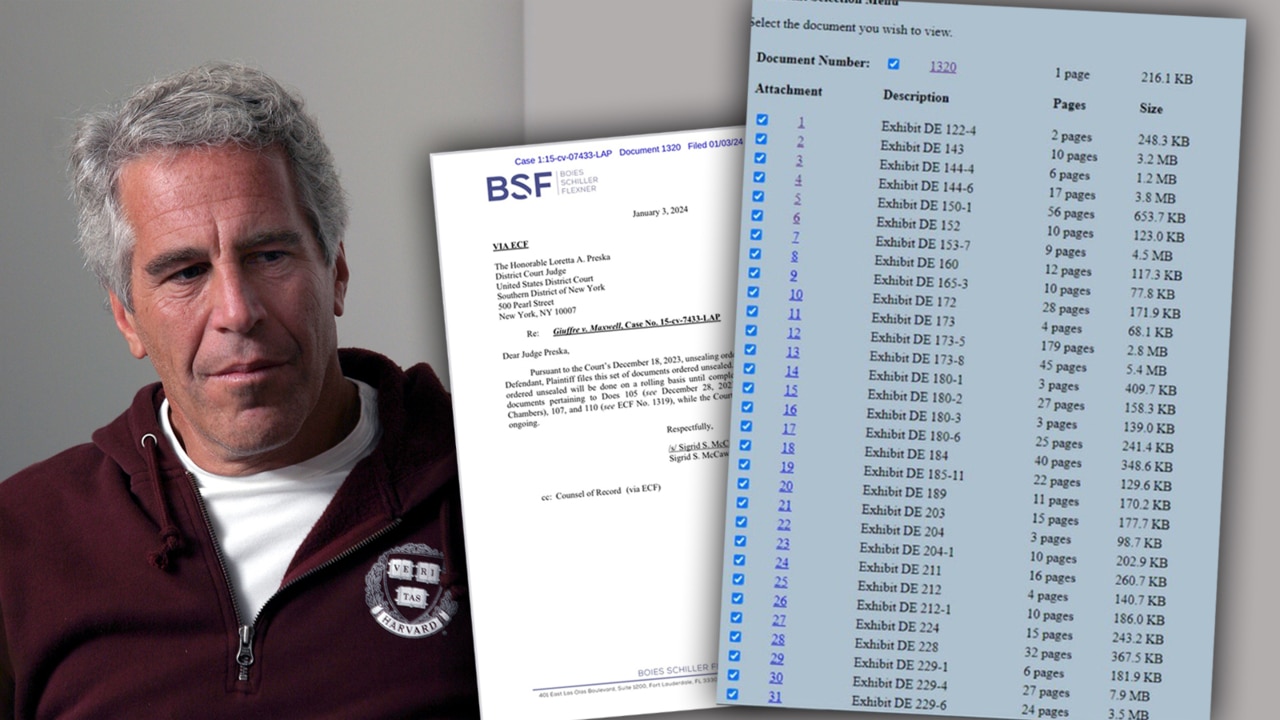Soft Mud Complicates Fin Whale Skeleton Recovery In Anchorage Amidst Warming Weather

Table of Contents
The Challenges of Recovering a Fin Whale Carcass
Retrieving large marine mammal carcasses is inherently difficult, even under ideal conditions. Fin whales are immense creatures; this particular individual posed significant logistical challenges due to its sheer size and weight. The recovery process demanded careful planning and execution, requiring specialized expertise and equipment.
- Specialized Equipment: Cranes with substantial lifting capacity, heavy-duty transport vehicles capable of navigating challenging terrain, and specialized marine recovery equipment were all essential.
- Expert Personnel: The operation necessitated a team of experienced personnel, including marine mammal experts, crane operators, and engineers skilled in delicate recovery operations.
- Decomposition and Environmental Concerns: The decomposition process is rapid, especially in warm weather. This posed a significant risk to the integrity of the skeleton, as well as potential environmental hazards related to bacterial growth and the release of harmful substances. Safe and environmentally responsible recovery methods were paramount.
The Impact of Soft Mud on Recovery Efforts
The soft mud in the Anchorage location presented a particularly significant challenge. This unstable substrate made excavation and transportation exceedingly difficult and time-consuming. The risk of the carcass sinking further into the mud was a constant concern.
- Equipment Malfunction: The soft mud increased the risk of equipment becoming stuck or damaged, potentially causing delays and increasing costs. Specialized equipment designed to operate in soft, muddy conditions was crucial.
- Time Constraints: The unpredictable nature of the mud significantly impacted the timeline. The team had to carefully plan each step to avoid damaging the carcass or getting equipment mired.
- Increased Costs: The challenges associated with the soft mud inevitably led to increased costs, requiring more time, specialized equipment, and personnel.
The Role of Warming Weather in Exacerbating the Situation
Warmer-than-average weather significantly exacerbated the already challenging situation. Accelerated decomposition due to higher temperatures posed a serious threat to the integrity of the skeleton. Additionally, the warmer weather affected the consistency of the mud, making it even softer and more unstable.
- Rapid Decomposition: Elevated temperatures increased the rate of decomposition, impacting the skeleton's structural integrity and limiting the time available for the recovery operation.
- Health Hazards: Increased bacterial growth posed a potential health hazard to the recovery team, necessitating stringent safety protocols.
- Urgency of the Operation: The rapidly deteriorating condition of the carcass created a sense of urgency, demanding swift and efficient action.
Recovery Methods and Technological Solutions
The Fin Whale Skeleton Recovery team employed a multi-pronged approach. Specialized cranes and excavators designed for soft mud conditions were crucial. Innovative techniques were used to stabilize the carcass and prevent further sinking into the mud, and careful planning ensured safe and efficient transportation to a research facility. The operation involved collaboration between several organizations and experts, including marine biologists, engineers, and local authorities.
- Specialized Equipment: The recovery relied heavily on excavators with wide tracks to minimize ground pressure and cranes equipped with specialized lifting apparatus for delicate handling of the carcass.
- Stabilization Techniques: Strategies to prevent further sinking included the use of stabilizing materials beneath and around the carcass and careful excavation to minimize disturbance.
- Transportation Logistics: A specialized transport vehicle was used to carefully move the whale carcass to the research facility while minimizing further damage.
Scientific Value of the Fin Whale Skeleton
The recovered fin whale skeleton holds immense scientific value. Studying the skeleton provides invaluable insights into various aspects of the whale's life and the wider marine ecosystem. Analysis will provide data on its age, health, diet, and potential cause of death.
- Population Dynamics: The skeleton will contribute to a better understanding of fin whale population dynamics, providing data on the age structure and health of the population.
- Ecological Insights: Analysis of the whale's diet can reveal valuable insights into the marine ecosystem's health and productivity.
- Conservation Efforts: The research will contribute to ongoing conservation efforts for endangered species, providing vital data to inform management strategies.
Conclusion: The Complexities of Fin Whale Skeleton Recovery
The Fin Whale Skeleton Recovery operation in Anchorage highlighted the numerous complexities involved in retrieving large marine mammal carcasses, especially when faced with challenging environmental conditions. The soft mud and warm weather presented significant obstacles, necessitating specialized equipment, expert personnel, and innovative techniques. Despite these difficulties, the successful recovery is a testament to the dedication and expertise involved, ensuring that this valuable specimen will contribute significantly to scientific understanding. Learn more about the ongoing efforts in fin whale skeleton recovery and support research initiatives to better understand these magnificent creatures.

Featured Posts
-
 Bitcoin Price Analysis The Trump Factor And The Road To 100 000
May 09, 2025
Bitcoin Price Analysis The Trump Factor And The Road To 100 000
May 09, 2025 -
 Can Trumps Next 100 Days Send Bitcoin To 100 000 A Realistic Assessment
May 09, 2025
Can Trumps Next 100 Days Send Bitcoin To 100 000 A Realistic Assessment
May 09, 2025 -
 Daycares Impact On Young Children A Critical Analysis By A Parenting Expert
May 09, 2025
Daycares Impact On Young Children A Critical Analysis By A Parenting Expert
May 09, 2025 -
 Chinas Impact On Luxury Car Sales Bmw Porsche And Beyond
May 09, 2025
Chinas Impact On Luxury Car Sales Bmw Porsche And Beyond
May 09, 2025 -
 Wireless Mesh Networks Market Size And Growth Projections 9 8 Cagr
May 09, 2025
Wireless Mesh Networks Market Size And Growth Projections 9 8 Cagr
May 09, 2025
Latest Posts
-
 7 Year Reunion High Potential Finale Features Familiar Faces
May 09, 2025
7 Year Reunion High Potential Finale Features Familiar Faces
May 09, 2025 -
 High Potentials Bold Finale Why Abc Was Impressed
May 09, 2025
High Potentials Bold Finale Why Abc Was Impressed
May 09, 2025 -
 Pam Bondis Planned Release Of Documents Related To Epstein Diddy Jfk And Mlk
May 09, 2025
Pam Bondis Planned Release Of Documents Related To Epstein Diddy Jfk And Mlk
May 09, 2025 -
 Pam Bondi Epstein Diddy Jfk Mlk Documents Imminent Release
May 09, 2025
Pam Bondi Epstein Diddy Jfk Mlk Documents Imminent Release
May 09, 2025 -
 Examining The Epstein Case Ag Pam Bondis Decision And Transparency
May 09, 2025
Examining The Epstein Case Ag Pam Bondis Decision And Transparency
May 09, 2025
